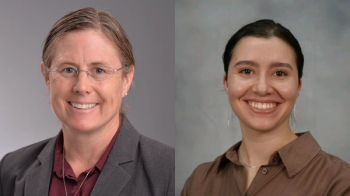
EAS 2024: Interviewing Rachel Martin, Winner of the EAS Award for Outstanding Achievements in Magnetic Resonance
As part of our EAS 2024 coverage, we recently interviewed Rachel Martin of the University of California, Irvine about her work and her being awarded the EAS Award for Outstanding Achievements in Magnetic Resonance.
During the 2024 Eastern Analytical Symposium (EAS), which was held November 18–20 in Plainsboro, NJ, various scientists were awarded and honored for their contributions to the analytical science community. One such award winner is Rachel Martin of the University of California, Irvine, who was awarded the EAS Award for Outstanding Achievements in Magnetic Resonance.
Rachel Martin is a Chemistry Professor at the University of California, Irvine. She earned her B.S. in Chemistry from Arizona State University in 1997, and her Ph.D in Chemistry from Yale University in 2002. Her research mainly focuses on solid-state and solution nuclear magnetic resonance (NMR), protein structure, membrane proteins, and more.
As part of our EAS 2024 coverage, we interviewed Martin about her research, her award win, and what she pictures the future of NMR to be like.
In this interview, Martin answers the following questions:
- Congratulations on your EAS Award for Outstanding Achievements in Magnetic Resonance! Can you tell us a little bit more about what this recognition means to you?
- Could you give us a brief overview of your work at the University of California, Irvine, and how you and your team work to develop unique NMR instrumentation?
- Are there any new or interesting research that you will be exploring that you’d like to highlight for our readers?
- As the year ends, what emerging trends do you expect to shape NMR in 2025 and beyond?
- What advice would you give to scientists just starting out in their careers?
To learn more about EAS 2024, you can look at our news coverage, which includes the
Newsletter
Get essential updates on the latest spectroscopy technologies, regulatory standards, and best practices—subscribe today to Spectroscopy.




